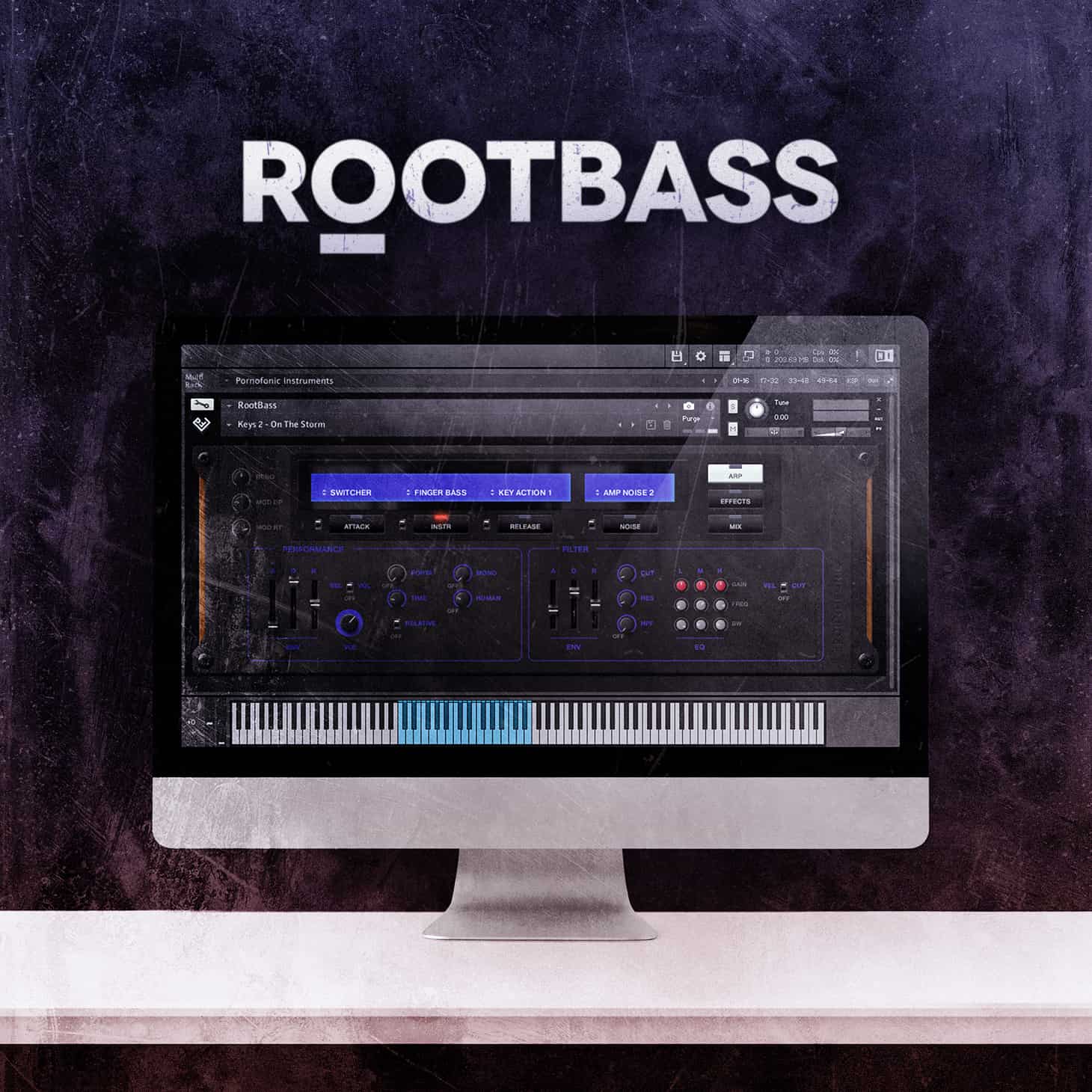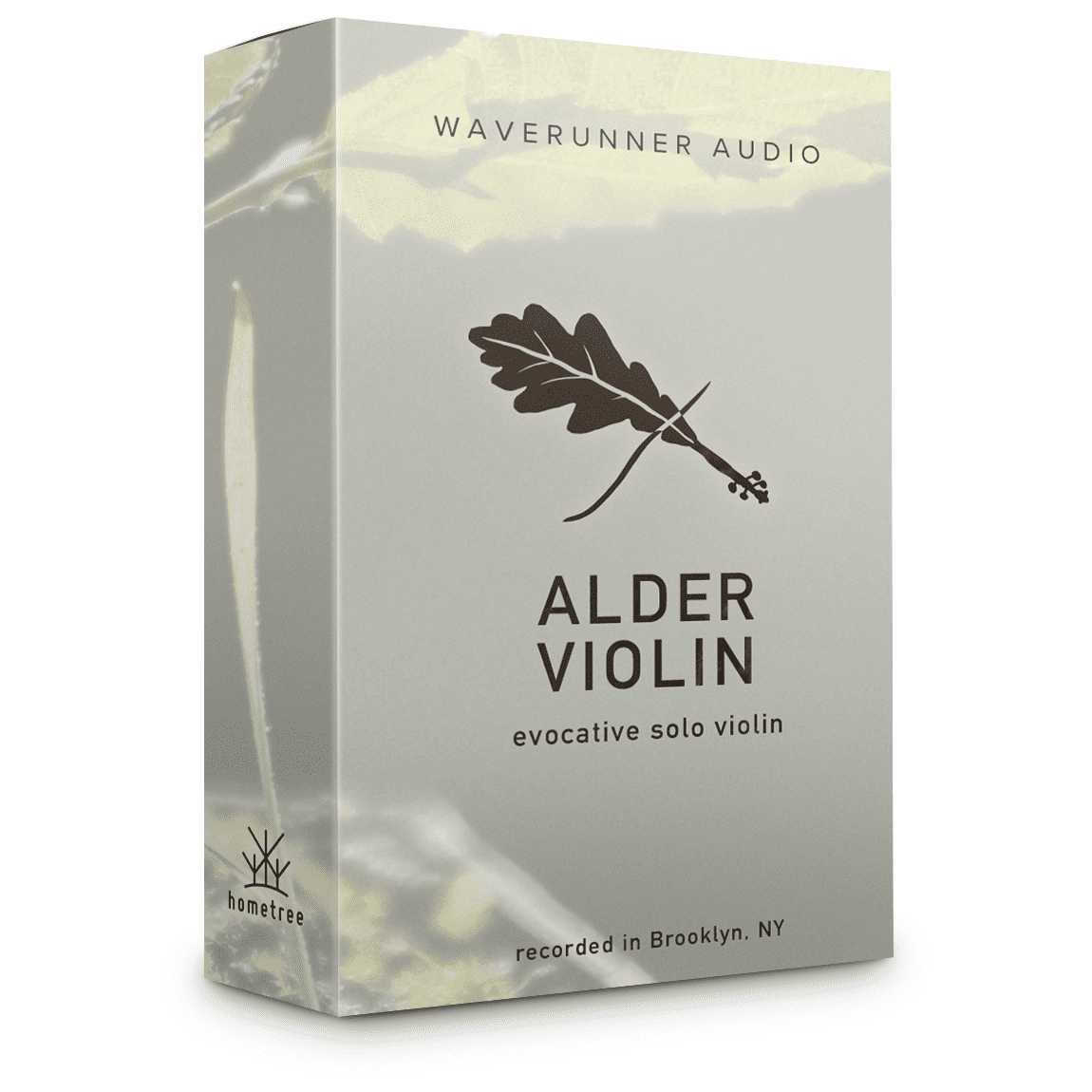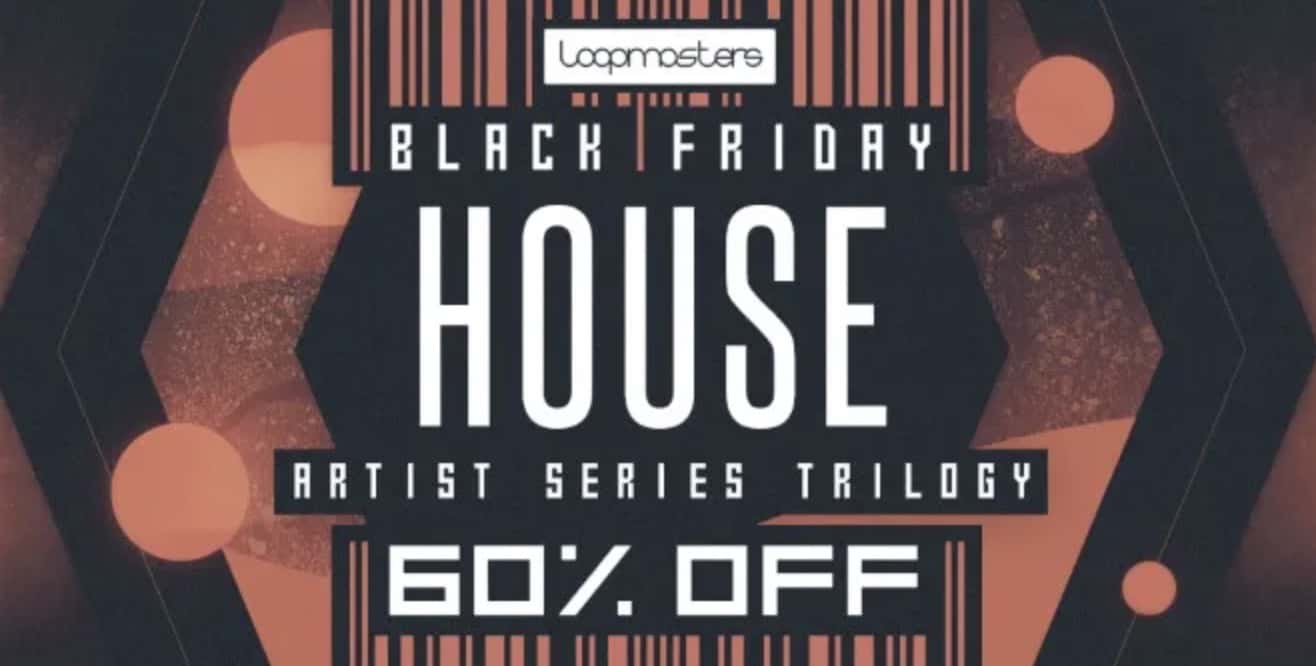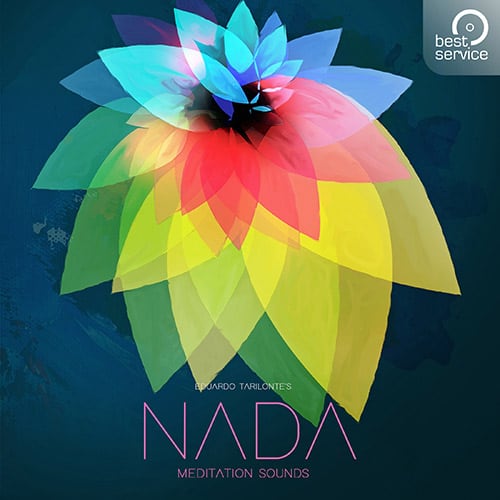RootBass by pornofonic Instruments
pornofonic Instruments famous for their Dirty Kontakt Instruments for Filthy Minds released RootBass, Retro mechanical bass instruments constructed from a multi-sampled vintage
analog synthesizer, physical actuators, noise artifacts, and amp/cabinet impulses.
RootBass is based on retro mechanical bass instruments constructed from a multi-sampled vintage analog synthesizer, physical actuators, noise artifacts, and amp/cabinet impulses. RootBass recaptures the sound and feel of classic bass keys, electric basses, and bass synths from the 60s and 70s: smoky tines, fuzzy basses, funky clavs, electric fuzzbox pianos, deep synth arps, broken rock organs, old noise boxes that never existed yet sound like they should have.

What separates a digital instrument from a mechanical one is the sound and feel of striking a key and sensing a mechanical actuator working the string or tine or electric contact. That unmistakeable, satisfying *thunk* is at the root of this instrument.
Blending carefully modeled, velocity-sensitive multi-samples from a vintage analog synthesizer with both velocity-sensitive physical actuators —keys, switches, old circuitry, and others—and articulations from analog waveforms—sine, saw, pulse, white noise, and others—RootBass recaptures the sound and feel of classic bass keys, electric basses, and bass synths from the 60s and 70s: smoky tines, fuzzy basses, funky clavs, electric fuzzbox pianos, deep synth arps, broken rock organs, and old noise boxes that never existed yet sound like they should have.

Custom noise textures, which include several tape hiss and flutter styles, amplifier hum, vinyl crackle, VHS tracking, and electromagnetic interference, color each instrument with just the right amount of dirt. Routed through a classic tape echo, amp/cabinet impulses, and effects, RootBass has a distinctive sound that feels solid, real, and deliciously mechanical.
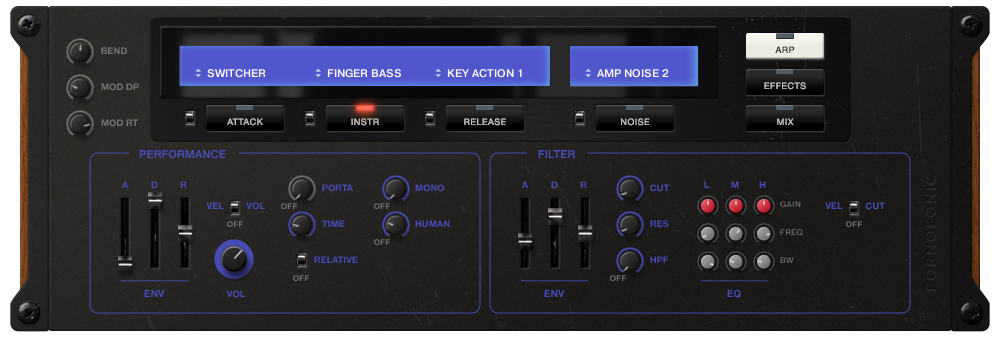
Mechanical Bass Instruments
Independently selectable key-down and key-up articulations offer separate decay, filter, tuning, and velocity sensitivity controls, including fine control over their position relative to the bass’s attack and release. Similarly, control the noise type, volume, envelope, filtering, and velocity sensitivity. The instrument offers poly/mono modes and a simple, classic legato mode. Each element can be bypassed.
Tape Echo/FX & Mixing
The unique character of tape echo pairs up beautifully with classic rotator, phaser, flanger, and chorus effects to color the bass tones. Three output mix types shape the instrument’s essential style: overdrive + amp/cabinet impulse, classic guitar amp, and classic UK guitar amp. Finally, tape saturation and compression give warmth and body while classic mono and modern stereo reverb impulses put space around it.
Classic Arpeggiator
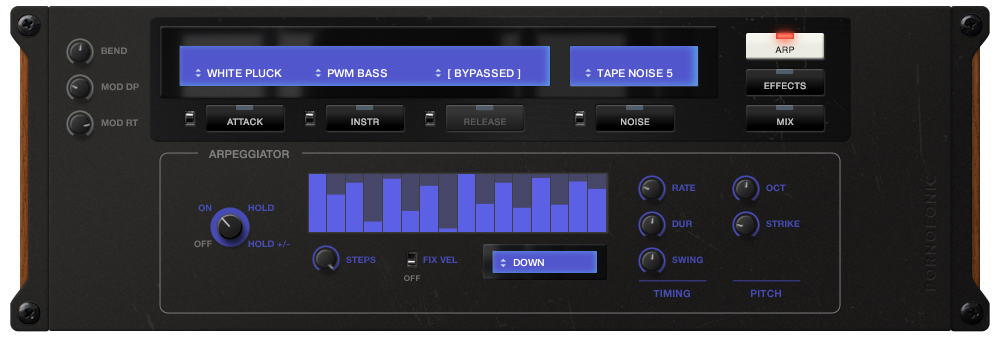
Analog articulations dominate RootBass’s arpeggiator, which recalls the iconic style of classic 70s electronica. Filtering, noise modeling, effects, and subtle modulation are central to capturing the feel of vintage analog synths with their fluctuating voltages, scratchy pots, failing transistors, and aged circuits. The humanization feature (instrument mode) adds another dimension by shifting note volume, pitch, and filtering.
About PORNOFONIC INSTRUMENTS
Started by Emlyn Addison, a composer and artist (clocolan) based in Providence, Rhode Island, PFI’s first instrument was the aptly named Klusterjunkk which offered an array of unusual percussion instruments for composers. Constructed from junk objects and recyclables, the focus was on dirt, noise, and the unpredictability of performance as a part of the percussive sound. This was followed by the Klusterkitt kit builder and drum designer series: Konstruktor, Fabrikator, and Resonator. Each offered a different take on noisy synthetic-acoustic drum percussion colored and warped by custom convolution IRs. RootBass is the newest addition to PFI’s instrument lineup, bringing its distinctive dirt + noise sensibility to bass design.

Availability
RootBass us available now at a 25% off intro pricing for January 2020 (reg. $59)

